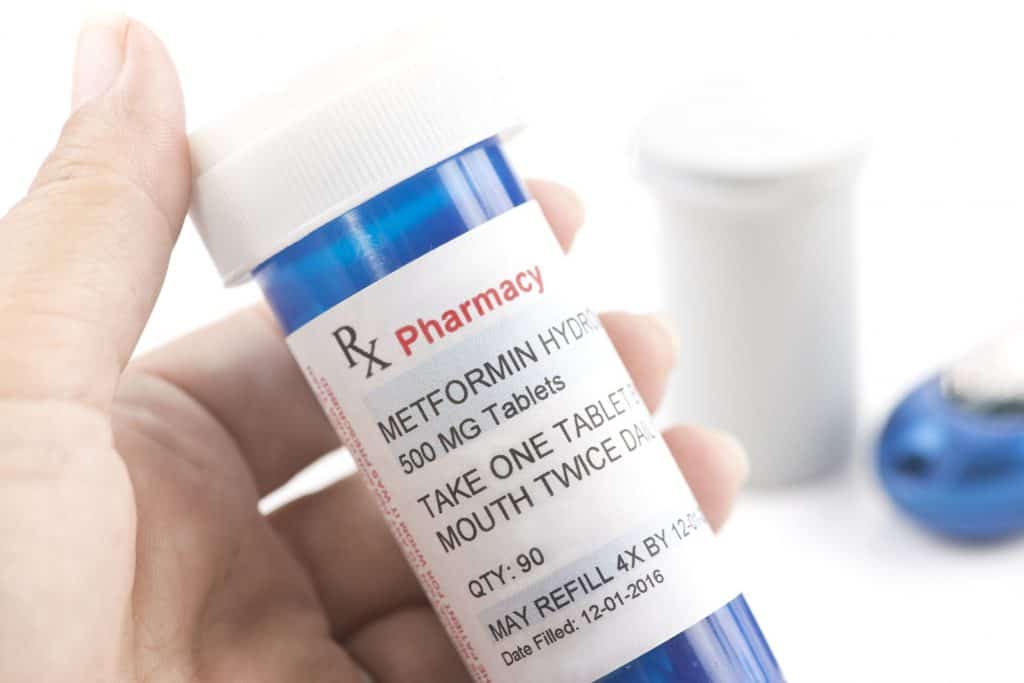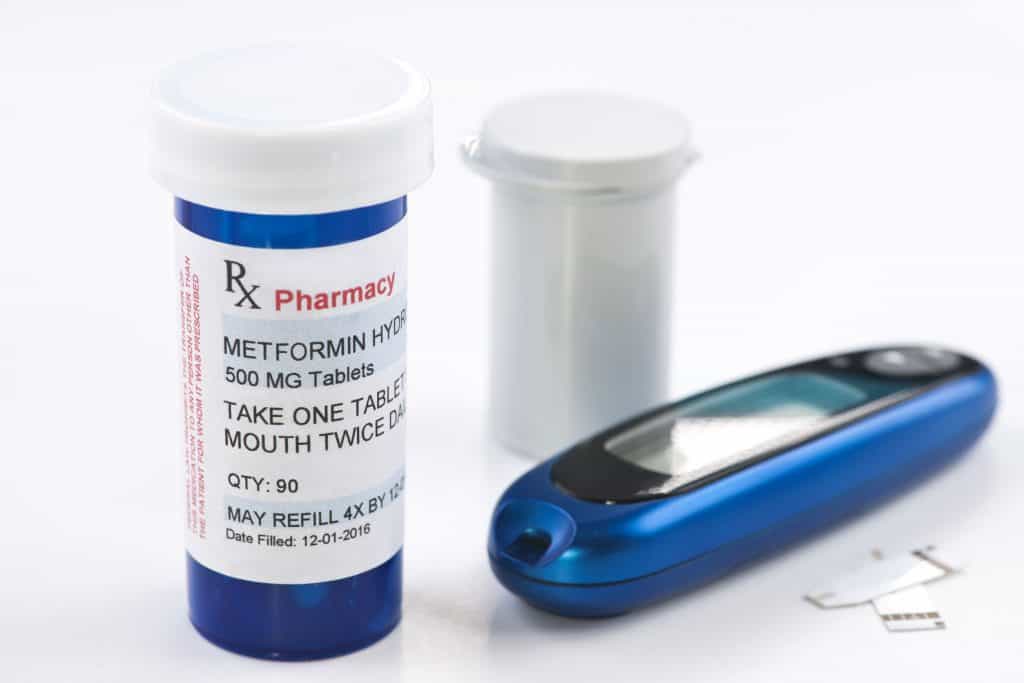Metformin vs Metformin HCL, Side Effects, Dosage, Costs
Posted by Prescription Hope - See Editorial Guidelines (Last Updated On: Thu Feb 02 2023)
When it comes to deciding which diabetes drug might be right for you, it can be confusing and may seem like a difficult process. So, when considering Metformin vs Metformin HCL, this article will give a clear breakdown of what are Metformin and Metformin Hydrochloride (HCL), so you can be armed with the differences between the two when discussing them with your Doctor.
Quickly though, we’ll give you a brief overview of the two main differences, then we’ll take you through some in-depth comparisons.
Metformin vs. Metformin HCL? Metformin and Metformin HCL are used for treating type 2 diabetes. Metformin HCL is an extended-release version where the drug is released gradually into the system, unlike Metformin. On average, Metformin peaks at 2-3 hours and Metformin HCL at 4-8 hours. However, both medications have the same effect.
Now we know the quick answer, let’s take a look at the active ingredients in Metformin vs Metformin HCL. Then we’ll move on to how they work.

Active Ingredients of Metformin and Metformin HCL
As the name suggests, both Metformin and Metformin HCL medications contain the same active ingredient, Metformin. Metformin is an agent of the biguanide class drugs. Metformin is the first drug choice for the management of type 2 diabetes.
How Metformin and Metformin HCL Work
Since both Metformin and Metformin HCL have the same active ingredient, they work pretty much the same.
Both of these medications work by improving blood sugar levels. Metformin works on the enzymes in the liver, reducing the glucose absorption from the diet, while also reducing the production of new glucose.
This whole process of how Metformin and Metformin HCL medications work to lower blood sugar can be broken down to three simple steps. Here are the steps:
- The drug makes it easier for the cells to absorb and use sugar.
- Reduces the absorption of sugar in the intestines.
- Reduces the production of glucose in the liver.
But Metformin usually takes up to 2-3 hours to peak, whereas Metformin HCL takes between 4-8 hours to peak on average.
Although these work the same, Metformin HCL is designed to provide better gastrointestinal tolerability with equal effectiveness. This is because Metformin HCL medication is designed to work consistently, where it gradually releases the drug within the main absorption area (upper gastrointestinal tract).
However, both Metformin and Metformin HCL work in a way that does not usually cause any low blood sugar (hypoglycemia).

Dosage for Metformin vs Metformin HCL
The dosage for Metformin and Metformin HCL must be considered based on overall effectiveness and tolerance – depending on the brands.
But, it’s essential to make sure that the dosage for both medications does not exceed the maximum daily recommended dose. Always follow your doctor’s orders and instructions for taking any medication.
Metformin Starting Dose
The starting dose for Metformin is recommended at 500 mg twice a day or 850 mg every once a day, given in divided doses. The maximum recommended dosage is 2550 mg in adults and 2000 mg in pediatric patients who are between the ages of 10-16.
Metformin HCL Starting Dose
The recommended starting dose for Metformin HCL is 500 mg once daily, if possible, with evening meals. Whereas, the maximum recommended dosage for Metformin HCL is 2000 mg in adults. Metformin HCL is typically not recommended for pediatric patients, especially those that are younger than 17 years old.

Metformin vs Metformin HCL Application
The Metformin HCL tablet should always be swallowed as a whole and never crushed or chewed. Sometimes the inactive ingredients of Metformin HCL may come out with the feces as a soft, hydrated mass. This is due to Metformin HCL being released slowly. It passes through the stomach and breaks down through the intestines.
Both medications are recommended to be taken with the minimum recommended dosage and then gradually increased. This helps in reducing possible gastrointestinal side effects and allows patients to identify the minimum dosage required for adequate glycemic control of the patient.
Note – Metformin should be taken in divided doses with or without meals, while Metformin HCL should be taken only once, usually with the evening meal. But it’s recommended to take both medications with meals to avoid possible stomach aches and other uneasiness.
Which is more effective? Metformin or Metformin HCL

As of now, the short answer is that both of these medications are considered useful in treating type 2 diabetes. So, there’s no real preference for which one may be effective over the other.
However, there are certain advantages that Metformin HCL has over Metformin. One main advantage is Metformin HCL can be taken only once a day, even with high doses.
This is because since Metformin HCL is an extended-release, it breaks down gradually throughout the day. But higher doses of Metformin will have to be taken by splitting throughout the day.
So, the need to administer Metformin HCL is also less when compared to Metformin, which can also improve patient compliance with the right doses.
Apart from this, Metformin HCL is designed as an extended-release that will gradually release the drug in the main absorption site – which is the upper gastrointestinal tract.
This has also made Metformin HCL present fewer side effects. Meaning, patients can take higher doses with maximum impact and fewer side effects compared to just the Metformin medication.
As such, Metformin HCL has more advantages over Metformin, but when it comes to effectiveness, they are almost the same. It’s just the ease of use, administration, and fewer side effects that makes Metformin HCL better than Metformin.
You can read more about the benefits of Metformin Hydrochloride in our article here.
Price: Metformin vs Metformin HCL
Metformin is considered a low-price option for treating type 2 diabetes over Metformin HCL.
Metformin retails at around $20 on average, whereas Metformin HCL retail price can range anywhere between $15 to $1000. The costs will depend on which version of Metformin and Metformin HCL the patients get. These prices are not subject to insurance plans and may vary depending on the pharmacies.
If you’re struggling to afford your Metformin or Metformin HCL medication, then take a look at our Patient Assistance Program for details on how you can dramatically reduce your medication costs. Enrolling is simple, and it could save you thousands of dollars!
So now, let’s take a look at the side effects for Metformin vs Metformin HCL
Side Effects: Metformin vs Metformin HCL
Common side effects of both Metformin and Metformin HCL include:
- Diarrhea
- Feeling cold
- Dizzy, light-headed, tired, or very weak
- Low blood sugar
- Nausea and an upset stomach
- Slow or irregular heart rate
- Stomach pain and vomiting
- Troubles in breathing
- Unusual muscle pain
More specifically, Metformin has the following side effects:
- Vomiting
- Flatulence
- Asthenia
- Indigestion
- Abdominal Discomfort
- Headache
Whereas, Metformin HCL has nausea and diarrhea as its more specific side effects.
Apart from these side effects, both medications, in general, are considered a class b-drug, and so there are not enough studies to call it safe for pregnant women. This should always be discussed with your healthcare provider.
Also, when a breastfeeding mother uses Metformin or Metformin HCL, there are possibilities for hypoglycemia. So, it’s advisable to decide whether to take or discontinue these medications while breastfeeding. Consult your doctor for more in-depth consultation regarding this.

To Conclude
The difference between the two medications is not that great, as they both serve the same purpose. But we hope this has armed you with more information when deciding which one is best for you alongside your doctor
If you have any questions about how Prescription Hope can help you save money on any of the 1,500 medications that we offer, then visit our website here. If you’re having trouble affording any of the medicines you’ve been prescribed, contact us, or visit the enrollment page to create an account and fill out an application to start saving.
ENROLL




